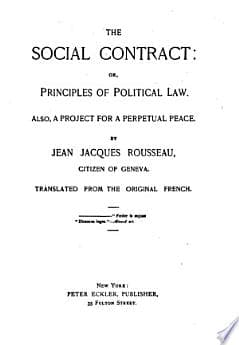- Published on
The Social Contract
- Authors

- Name
- Jean-Jacques Rousseau
- @search?q=Jean-Jacques Rousseau

Introduction
Jean-Jacques Rousseau's 'The Social Contract' is a foundational text in political philosophy, first published in 1763. It argues for the basis of legitimate political order within the context of classical republicanism.
Key Philosophical Concepts
Rousseau introduces the idea of the 'General Will' as a collective desire to promote common good. He distinguishes between the 'Will of All'—the sum of individual interests—and the 'General Will,' which represents the common interest.
Analysis of the Social Contract
Rousseau discusses the social contract as a mechanism through which individuals come together to form a society. This contract transforms individual natural rights into a collective 'right' oriented towards the common good.
Rousseau's View on Freedom and Government
Freedom, for Rousseau, is not merely the absence of constraints but acting in accordance with the General Will. He argues for a form of government that is responsive to the General Will, which may not always align with the majority's preference.
Implications for Modern Society
Rousseau's ideas have profound implications on modern political thought, particularly in understanding democracy, civic responsibility, and the relationship between the state and the individual.
